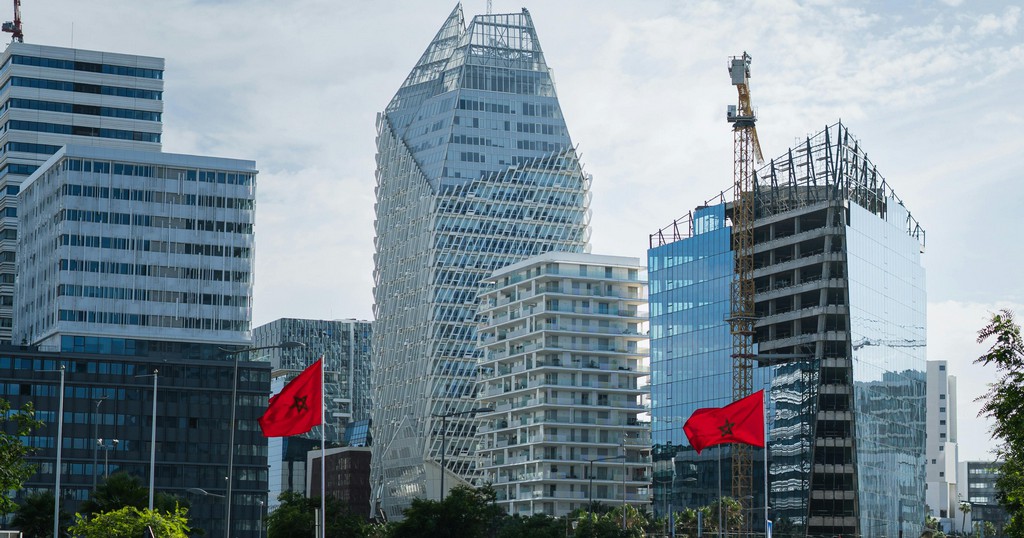
A solid opportunity, especially for international investors looking to expand. Morocco offers more than just a strategic location. It connects Europe, Africa, and the Middle East, and benefits from favorable trade agreem ...
Read more
A smart move for entrepreneurs, really. Whether you are local or international, Morocco stands out as a strategic, stable, and growing business destination in North Africa.
At wecount.ma, we support professionals from every corner of the world. We help them understand the legal requirements, tax rules, and administrative steps involved in launching a company in Morocco. From choosing the right legal form to making sure your tax ID and local registrations are complete, our team is with you from the first step.
This guide covers all the essential points, the advantages, the legal process, and how wecount.ma can support your business journey. Whether you are investing from abroad or starting locally, here is what you need to move forward, and keep growing.
Once you look closer, it becomes clear. Morocco offers a combination of access, opportunity, and support that is rare in the region. Many investors choose it for good reason, and not just for the weather.
Think of Morocco as a business bridge. On one side, Europe. On the other, sub-Saharan Africa. With ports on both the Atlantic and the Mediterranean, the country is ideal for import-export operations and international logistics.
Tangier Med, for example, is one of Africa’s largest ports. It makes shipping fast, reliable, and scalable. Companies based here can easily connect with clients and partners across France, Spain, West Africa, and beyond.
Support is not just on paper. The Moroccan government actively promotes investment in key sectors: manufacturing, renewable energy, tourism, and tech.
Here are just a few benefits available:
Then there are the Free Zones like Tangier Free Zone and Casablanca Finance City. These offer:
It is a strong formula for any business looking to grow cost-effectively.
Over 50 trade agreements. That is the current count. Morocco has built partnerships with the European Union, the United States, and multiple African countries, which means easier access to global markets with fewer tariffs.
On the ground, Morocco is more than just promise. Its economy is driven by high-performing sectors:
And with legal reforms and tech-forward policies, foreign investment keeps growing. Starting a business now means entering an economy ready for the future.
The legal framework is welcoming. Both citizens and non-residents can legally register and operate companies in Morocco, provided the steps are followed carefully.
Moroccan nationals have full access to business formation services. The SARL is the most popular legal form, and for good reason. It offers protection, flexibility, and ease of management.
Steps include:
Most of this is handled through regional investment centers (CRI), which simplifies the process for Moroccan entrepreneurs.
Good news. Foreigners can own 100 percent of a business in Morocco. There is no obligation to have a local partner.
Here is what you will need:
The legal system is designed to be open, especially to foreign capital. And in most cases, you will enjoy the same protections as local business owners. Certain activities might require extra permits, but those are clearly listed in Moroccan investment laws.
At wecount.ma, we specialize in guiding international clients through every step, from translation to legal filings.
Different business structures, different requirements. Choosing the right one affects everything, liability, governance, even tax obligations.
|
Type |
Ideal For |
Key Requirements |
|
SARL |
Startups, SMEs |
1–50 partners, 1 MAD minimum capital |
|
SA |
Large companies, public |
5 shareholders, 300,000 MAD capital |
|
Subsidiary |
Long-term foreign ops |
Independent company with full legal status |
|
Short-term presence |
Linked to foreign parent, no separate identity |
The SARL is the go-to choice. Flexible, secure, and ideal for SMEs.
Main details:
Perfect for local entrepreneurs and international startups looking for limited risk and ease of management.
For bigger projects, the SA is a solid fit, especially if you plan to raise capital or go public.
Key characteristics:
More complex, yes, but more credibility too.
Foreign companies often choose between opening a branch or setting up a subsidiary.
|
Criteria |
Branch Office |
Subsidiary |
|
Legal Status |
Same as foreign parent |
Independent Moroccan company |
|
Risk |
Parent company liable |
Liability limited to local entity |
|
Flexibility |
Limited |
Full operational freedom |
|
Recommendation |
Short-term or limited activities |
Long-term investment strategy |
We usually recommend the subsidiary model. It offers more autonomy and protection. We help our clients assess both options based on their goals.
The path is clear, but every detail matters. Follow the process in the correct order to avoid extra costs or legal delays.
Start by picking your legal form: SARL, SA, or another.
Then, select your company name. You must check and reserve it through OMPIC. It has to be unique and free of conflicts with registered trademarks.
We suggest confirming availability as early as possible.
Once the type and name are set, you will need:
Documents must be signed and legalized by a local authority or notary. If issued abroad, they may need certified translations.
Registration happens through the Centre Régional d’Investissement (CRI). It is a one-stop shop that handles several tasks:
This centralized approach saves time and simplifies the whole process.
Once you are registered:
VAT registration is also required in certain sectors or after hitting revenue thresholds.
Steps to Start a Business:
At wecount.ma, we walk clients through every stage, no loose ends, no missed paperwork.
Some rules apply across the board, regardless of your nationality.
|
Company Type |
Minimum Capital |
Partner Requirements |
|
SARL |
1 MAD |
1 to 50 partners |
|
SA |
300,000 MAD |
Minimum 5 shareholders |
You must deposit share capital in a Moroccan bank and provide a certificate during registration.
This is non-negotiable. Your company must have a registered Moroccan address.
Options include:
Without one, registration cannot proceed. We offer virtual addresses for international clients who are not yet physically present.
Expect to provide:
Also needed:
All must be legalized. We assist with preparing, translating, and certifying every required document.
Each step has its cost and timeline. The details vary based on your legal form, sector, location, and whether you are local or foreign.
Costs depend on:
You may also face bank fees and optional advisory charges. At wecount.ma, we give a tailored quote upfront, so there are no surprises.
A typical timeline:
All told, expect 2 to 4 weeks if everything is done right. Foreign investors may need longer due to document formalities.
We handle coordination with banks, authorities, and notaries to keep your launch on track.
The job is not finished once you register. Businesses must stay compliant with Moroccan law, taxes, accounting, employee rights.
Moroccan law requires:
At the end of each year, submit:
Some reports go to the tax office, others to commercial courts. We offer full accounting services to handle this workload reliably.
You will deal with:
Late or incorrect filings can lead to penalties. Most VAT returns are due monthly or quarterly.
We manage this rhythm, so your business stays compliant.
If you hire staff:
Foreign employees might need residency and work permits too.
We support all aspects of hiring, contracts, payroll, CNSS, and compliance.
You could do it alone, but you do not have to. At wecount.ma, we handle business setup, accounting, and compliance so you can focus on growth.
We manage:
Whether local or foreign, you are guided every step of the way.
Our accounting services include:
No penalties. No surprises.
No office yet? No problem. We offer:
Perfect for digital nomads or international founders.
At wecount.ma, we make starting and running your Moroccan business simple, compliant, and stress-free. Get in touch, and get started.

A solid opportunity, especially for international investors looking to expand. Morocco offers more than just a strategic location. It connects Europe, Africa, and the Middle East, and benefits from favorable trade agreem ...
Read more
Plenty of reasons to consider it. Morocco is growing, well located, and actively attracting investment. For both locals and international investors, the country offers real business potential. But getting started means g ...
Read more
Expanding into a new market isn’t just about locking in your strategy or chasing growth. You also have to follow the local rules, especially when it comes to accounting. For any company doing business here, knowing the ...
Read more